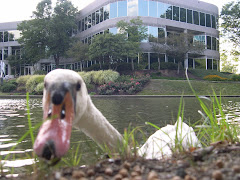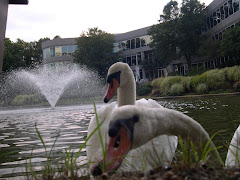'You fool! This very night your life will be demanded from you. Then who will get what you have prepared for yourself?'”
We read more about the frailty of life and the loss of possessions in Isaiah 40 and Ecclesiastes 1:3-4.
But Paul says in 2nd Corinthians 5:8,
“To be absent from the body is to be present with The Lord”.
To the thief on Jesus’ right during the crucifixion, Jesus answered,
"I tell you the truth, today you will be with me in paradise." (Luke 23:43).
The word from which we understand to be “today” is taken from the Greek word, ‘semeron’. Semeron literally says, “this day”. Not, in this generation or of this time period. In no way a person may be able to rationalize, does this verse suggest something of a delay in time.
“Semeron” addresses the idea of ‘soul sleep’ and ‘purgatory’. There is no delay in the time it takes us to die and arrive in Heaven. That is the very first benefit we receive when we pass from this body. We will immediately be with The Lord.
Philippians 1:21, “For to me, to live is Christ and to die is gain”. What do we gain?
• An eternity with God the FatherWe are aliens as we pass through on our way to Heaven.
• Freedom from toil, labor and the temptation to worry.
• Freedom from the body which does decay even as we live. (I Cor. 15:53)
• We arrive, and take hold of our purpose for which we were created. (Heb. 12:13).
Notes:
The Heidelberg Catechism says in Lord’s Day 16, Question and Answer 42, “Our death (the Christian’s death) is not a satisfaction for our sins, but only an abolishing of sin, and a passage into eternal life.”
Soul sleep; an idea contrived from I Thessalonians 4 suggest those who die in Christ are said to be asleep. This only regards the physical body which is at rest in the grave.
I will admit, I am not going to get involved with what is supposed to happen. It is a theological debate that I have not studied and I do not wish to give a flip answer to. The debate would stem from I Thesselonians 4:16. The question; ‘Do the physical bodies meet up with those who have passed on to Heaven?’
What does it mean to for Paul to say, “For me to live is Christ…”?
In life we are to reach out to others and testify of God, bringing Him glory(Matthew 5:16, Galatians 1:24). And, of course, we are to make disciples of all people. We have been given charge of this matter to bring people to the Lord.
I Corinthians 15:53-54 states that we all decay. Except for one recorded case, namely referencing a Russian Buddhist Lama we all die and parish. (Why did I include this link to a story of a dead man whose body will not parish? I don’t know. I guess I don’t want to leave out the exception. I don’t know that I can trust it. However, I can never say the Lord is not going to allow this or what His intent is.)



















18 comments:
Our Pastor often reminds us "absent from the body...present with the Lord." There is great comfort in that promise - especially now.
Hello Jim,
I don't think we will be in bodily form in heaven with the Lord until we recieve our glorified body. But I will have to do some more study on this myself. But i do believe that when we leave this earthly realm Jesus is there to take us unto Himself. That's my belief. Absent from the body present with the Lord! AMEN!
on the (i.e. this) day (or night current or just passed); generally, now (i.e. at present, hitherto)
Excellent point Jim. Some will believe that it will appear like a day because the spirit will be in a timeless state, but I tend to take the term 'today', and verse as plain literal.
I wrote on this theological issue:
thekingpin68/time to reason
σήμερον (sḗmeron)
NT
σήμερον in the New Testament
Definitions
Thayer
1) this (very) day)
2) what has happened today
Part of Speech: adverb
Citing in TDNT: 7:269, 1024
Strong
G4594
Neuter (as adverb) of a presumed compound of the article G3588 ("tau" changed to "sigma") and G2250; on the (that is, this) day (or night current or just passed); genitively now (that is, at present, hitherto): - this (to-) day.
Louw-Nida
Gloss Section
(ἐχθὲς καὶ σήμερον καὶ εἰς τοὺς αἰῶνας) always 67.87
today 67.205
ZHubert
With a link to the definition of Perseus
Ulrik Petersen
Strong's dictionary
Crosswalk
Thayer's dictionary plus other information.
LaParola
From this site's dictionary (in Italian)
In the New Testament
NA/UBS (also Westcott and Hort; Tischendorf; Byzantine)
σήμερον adverb: 41
Total 41
"But I do not consider my life of any account as dear to myself, so that I may finish my course and the ministry which I received from the Lord Jesus, to testify solemnly of the gospel of the grace of God." Acts 20:24 I want to testify of the gospel of the grace of God until He takes me home to be with Him.
Thanks Gigi and Tamela.
When I stated in a comment last week that I was going to write of the benefits of death, I felt that I should probably not be the one to do this.
However, the scripture is very plain concerning death. So, it was easy to just point to the Bible.
Russ and Jody,
Thanks for the Exegete, Russ. I have been trying to catch up and did not feel that I wanted to do the work.
You are thorough, however. And, if I get a comment from you, I can trust that you will expound for us. Your education is one of the selling points I pitch to people when I invite them to blog with us.
Thanks Jody,
Your comments are always to the point, insightful and very much welcome.
Shish, Jim,
When you were talking about the benefit of death, I was uncertain how you were going to express this. This is fantastic writing.
When a soul leaves the body, he or she walks straight into eternity, hopefully into God's kingdom and close to the Lord.
Behold I tell you a mystery. We shall not all sleep, but we shall all be changed in a moment, in a twingling of an eye, at the last trumpet.
This refers to the body, which sleeps until the dead are raised.
Death is swallowed up in victory through our Lord Jesus Christ. Praise be to God!
Love Always,
Vicki
When my husbands grandmother passed away, his uncle, her son, gave the message at her funeral. There were several little ones there who were quite close to their great-grandma. He gave each of the children a seashell and explained that grandma was like a seashell. Her body may have remained here, but she's not here anymore. Her shell was just a temporary home until she left to be with Jesus. There are so many levels one can get to on this topic. Nice post.
Thanks Hun,
I appreciate your encouragement. But, you do know, this is my method of studying and holding myself to accountability.
W.O.A.M.,
Thanks for the very cool 'object lesson'.
Jim
Thanks, Jim.
Russ
Hi Tamela,
I know what you mean. I don't see us as having a need for bodies in Heaven, either. I just included that as a follow up on the doctrine of Soul Sleep. And, I admit, I don't know much about it. And, further more, I will say, I don't think I need to know.
Thanks T., Sorry I missed your comment last night.
Jim
Jim,
In Photos of that Buddhist Lama, he doesn't look too good. Even if his body is claimed to be imperishable, it looks kind of perished actually. Besides, even if the body is well preserved, the guy is dead. We have a Lord, who when buried, didn't need digging up. he got up and walked around because he was truly alive again.
Below is an article which may explain our Buddhist friend:
Larry E.
As part of my episode, I examined the ancient practice of self-mummification by a few Japanese Buddhist monks called sokushinbutsu. This 3000-day ritual called for a starvation diet and exercise to lose all body fat, then a slow self-poisoning with an arsenic rich diet, followed by an entombment and final starvation. The lack of body fat, the dehydration, and the high arsenic content actually did combine to make a reasonably good chance for mummification instead of decomposition, assuming fortuitously dry conditions in the tomb. Approximately 20 monks successfully became mummified in this way.
Then a listener wrote in to suggest I look into the case of Hambo Lama Itigelov, a Buddhist monk exhumed in 2002 in a remarkably good state of preservation. I did a huge amount of Internet searching, and found exactly zero critical reporting of the incident. YouTube has clips from a documentary and from news reports that uncritically repeat the claims that he looks like he’s been dead only 12 hours, that no evidence of chemical embalming has been found, and that his body remains flexible as if he’s merely asleep.
A Japanese monk who successfully practiced sokushinbutsu.
But I was luckily prepared with a good knowledge of sokushinbutsu, as Itigelov himself would have been. Right away, I saw the connection. Was Itigelov’s preservation a miracle unexplainable by science, or was it a modern case of sokushinbutsu?
More and more research turned up some facts about Itigelov’s life. Significantly, I discovered that he had a degree in medicine and had written a Buddhist encyclopedia on pharmacology. It turns out that a report from a pathologist present at the exhumation noted his body had a high level of bromine salts. And, in accordance with one of Itigelov’s final wishes, his body had been buried packed in salt, an obvious dessicant, used for millennia to preserve meat.
These bits of circumstantial evidence are certainly consistent with Itigelov performing sokushinbutsu. Armed with his medical knowledge and a desire to self-mummify according to tradition, he simply updated the ancient Japanese technique. By some undocumented and unknown process, he filled his body with bromine salts, which are available from a variety of naturally occurring sources. He gave instructions that his body be dessicated with salt at death. He gave instructions that he be exhumed. (He actually requested that he be exhumed after “a few years”, not the 75 years mentioned in some news reports. Due to religious restrictions in the Soviet Union, monks briefly exhumed him in secret in 1955 and again in 1973, but he was not finally exhumed until 2002.)
Much of what Itigelov did during his final days was undocumented and he certainly had ample opportunity to prepare himself in secret. What these preparations may have been is likely to remain unknown, as it’s improbable that today’s monks will allow any further testing to be done on Itigelov’s tissue. However, miracles aside, we already have ample evidence that Itigelov’s current “incorrupt” condition is perfectly consistent with an updated form of sokushinbutsu, performed by a clever medical scholar in accordance with tradition.
Larry,
Very interesting information. Thanks for taking the time to add it for our network to read. I knew there had to be some explaination. However, why do the scientist say they are baffled?
Jim
Hi, Jim. I hope you haven't given up on me yet. Take a look at my homeschooling computer class blog, to see what I've been up to.
I think you're dead on (pun intended) with your post. I love Peter's analogy to his current tabernacle being dissolved, when he dies, and replaced with one not made with hands, eternal in the heavens. :) I had a fleeting thought to post about that... now I just might!
Happy Thanksgiving!
Thanks Jim,
Mrs. Moogly just finished stuffing the turkey...in a few hours we'll all be "stuffed"! :-)
Happy Thanksgiving to you!
Jason
I hope you had a wonderful Thanksgiving!! :-)
Post a Comment